In this issue
-
Who’s afraid of the big bad egg? Why eggs deserve a regular place in your diet
-
Recipe: The brainiacs breakfast
-
Fall webinar series: Register now
Who’s Afraid of the Big Bad Egg?
Why Eggs Deserve a Regular Place in Your Diet
For decades, eggs were unfairly demonized. Branded as cholesterol-laden artery-cloggers, they were pushed off breakfast tables in favour of their fat-free whites. But science has gradually reversed that view, revealing eggs – yolks and all – as a near-perfect food.
The Cholesterol Myth
The idea that eggs raise blood cholesterol has been largely debunked. Dietary cholesterol has minimal impact on blood cholesterol because the liver produces most of what is circulating in the blood. When dietary intake falls, the liver simply makes more. So, cutting out eggs won’t reliably reduce blood cholesterol.1

That’s not to say that raised blood cholesterol isn’t a problem. It is. High levels, particularly of LDL cholesterol, are strongly associated with increased cardiovascular risk. But the key point is that for most people, it’s not cholesterol-rich foods like eggs that’s driving those levels up. Instead, it’s excess intake of sugar, refined carbohydrates, trans fats, and ultra-processed foods that are more significant contributors. One study of patients with high blood pressure found that those who ate more than seven eggs per week had up to 29% lower mortality over 11 years than those who ate fewer than two.2
However, despite decades of reassuring evidence suggesting eggs have been unfairly implicated in heart disease risk, the anti-egg headlines still persist.
Are the Negative Studies Reliable?
Many studies claiming eggs harm heart health don’t stand up to close scrutiny. One Finnish study, often cited as evidence that eggs are bad for us, examined egg intake at the start of the study, then linked it to mortality rates 31 years later—with no information on diet or lifestyle changes that may have occurred during the intervening decades.3 That’s not robust science.
Another major flaw is failure to consider what other foods are eaten with the eggs which may affect cardiovascular health. In North America, they are often served with bacon, sausages and fried potatoes. By contrast, in European countries eggs are commonly eaten with vegetables, whole grains, or olive oil—as in Spanish tortillas or Italian frittatas. In many studies, eggs consumed in cakes or pastries are still counted as “egg intake,” ignoring the fact that any health risks are just as likely to be due to the sugar, white flour, and trans fats these foods contain.
Nutrient-Dense by Design
Eggs are nutritionally rich. The white of an egg provides 6 grams of high-quality protein. But it is in the yolk where you’ll find most of the nutrients—including all the fat-soluble vitamins (A, D, E, K), B12, folate, selenium, iodine, and zinc.
Egg yolks are a rich source of choline, essential for liver and brain health. Choline is needed to produce the neurotransmitter acetylcholine, sometimes called the brain’s memory manager. Deficiency of choline has been linked to poor memory and brain fog, and even dementia4 [More about choline in future newsletters]. Egg yolks also contain eye-protective carotenoids (lutein and zeaxanthin) needed to prevent macular degeneration, omega-3 fatty acids (especially in pasture-raised or flax-fed hens), and natural vitamin D in summer-laid, free-range eggs.
Eggs are one of the few unprocessed, whole foods that have remained virtually unchanged throughout human history. When consumed in the context of a healthy diet, they deserve their place as a regular part of your plate.
What Do Current Guidelines Say?
Given that the evidence linking eggs to heart disease is weak, and that stronger studies showing no such connection, current guidelines generally state that eating up to two eggs a day is safe and compatible with heart health.

The Brainiac’s Breakfast (Serves 1)
High-protein, brain-supportive fuel to carry you through the day
This breakfast of elevated scrambled eggs and anti-oxidant-rich vegetables is designed to fuel both mental focus and physical energy. It features 30 g of protein from eggs – nature’s original brain food and a rich source of choline, B12, and high-quality protein – together with 2 servings of anti-oxidant-rich vegetables. This powerhouse plate is naturally gluten-free and keto-friendly, making it ideal for a wide range of dietary preferences.
For the scrambled eggs:
- 2 whole eggs
- ½ cup egg whites (from a carton)
- 30g (about ¼ cup) grated sharp cheddar or crumbled feta
- 1 finely chopped green onion
- 1 teaspoon butter or olive oil
- Salt and pepper to taste
For the vegetables:
- 1 teaspoon olive oil
- ½ cup chopped red bell pepper
- 1 cup fresh spinach
- Salt and pepper, to taste

Method
1. Sauté the vegetables
Heat a little oil in a skillet over medium heat.
Add chopped red bell pepper and cook 3–4 minutes until soft.
Add spinach and cook until just wilted (about 1 minute).
Season with salt and pepper. Set aside.
2. Scrambled eggs
In a bowl, whisk together 2 whole egg plus ½ cup egg whites.
Season lightly with salt and pepper.
In a non-stick skillet, heat 1 tsp butter or oil over medium-low heat.
Pour in the egg mixture plus the chopped green onion.
Stir gently and cook slowly until just set and creamy.
Stir in the cheese, allowing it to melt slightly.
To serve
Plate the scrambled eggs alongside the sautéed vegetables for a flavour-packed, balanced breakfast.
Nutrition Highlights
Contains 30g protein; 2 servings of vegetables; 335mg choline, 70mg magnesium

THE NEW NUTRITION, FALL 2025
Register now for our live webinar series:
The New Nutrition Webinar Series has been running each Spring and Fall since 2003. This series of 4 live webinars is an up-to-date exploration of the critical role diet and supplements play in maintaining health.
The series breaks down complex nutritional science into practical, easy-to-understand information, offering actionable advice on optimizing diet and supplements, should interest anyone concerned with maintaining good health.
Rooted in the latest scientific research, the webinars should also appeal to doctors, nutritionists, and other health professionals seeking timely, evidence-based insights into the rapidly evolving field of nutrition.
WEEK 1. Vitamin D, Mood and Immunity:
The Sunshine vitamin’s role in mental health and immune resilience
Wednesday 5th November 2025
Best known for its role in bone health, vitamin D is also critically important for immunity and brain health. Low vitamin D levels are linked to depression, seasonal affective disorder (SAD) and increased risk of infection, especially in winter. This webinar explores how vitamin D supports mood and immune defenses, and offers practical guidance on recognizing and correcting deficiency.
WEEK 2. High Cholesterol:
Can it be controlled without medication?
Wednesday 12th November 2025
High cholesterol is a major risk factor for heart disease, yet medication may not be the only approach to cholesterol control. This webinar reviews the evidence for non-pharmaceutical approaches, including diet and lifestyle changes and the use of carefully curated nutritional supplements. We also consider when lifestyle measures may not be enough and medication needed.
WEEK 3. Should everyone avoid gluten?
Wednesday 19th November 2025
Gluten-free diets are hotly debated as a dietary approach to better health. While everyone agrees that anyone diagnosed with celiac disease must avoid gluten, growing evidence suggests that gluten and other wheat proteins may also affect individuals without celiac disease. This webinar will explore the science behind non-celiac gluten sensitivity (NCGS), explore who might benefit from a gluten-free diet and provide practical guidance on identifying and managing gluten-related health issues.
WEEK 4. Those Senior Moments:
Can diet and supplements save your memory
Wednesday 26th November 2025
Memory lapses are often dismissed as an inevitable part of aging, but growing evidence suggests that nutrition plays a vital role in supporting brain health and preventing memory decline. This webinar will review the substantial amount of recent research linking memory decline with inadequate nutrition, and show how dietary patterns and specific supplements can help preserve cognitive function, reduce the risk of decline, and support sharper memory at any age in life.
COST: Single webinars are CAD 39.00. Register for the complete series for CAD 125.00
To register visit https://isom.ca/learning/events/new-nutrition-fall-2025/

References
1. Carter S, et al. Impact of dietary cholesterol from eggs and saturated fat on LDL cholesterol levels: a randomized cross-over study. Am J Clin Nutr. 2025 Jul;122(1):83-91
2. Zhang Y., Zhang D. Red meat, poultry, and egg consumption with the risk of hypertension: A meta-analysis of prospective cohort studies. J. Hum. Hypertens. 2018;32:507–517
3. Zhong VW et al. Associations of Dietary Cholesterol or Egg Consumption With Incident Cardiovascular Disease and Mortality. JAMA. 2019 Mar 19;321(11):1081-1095.
4. Goldberg E et al. Working Memory and Inadequate Micronutrient Consumption in Healthy Seniors. J Nutr Gerontol Geriatr. 2019 Jul-Sep;38(3):247-261

